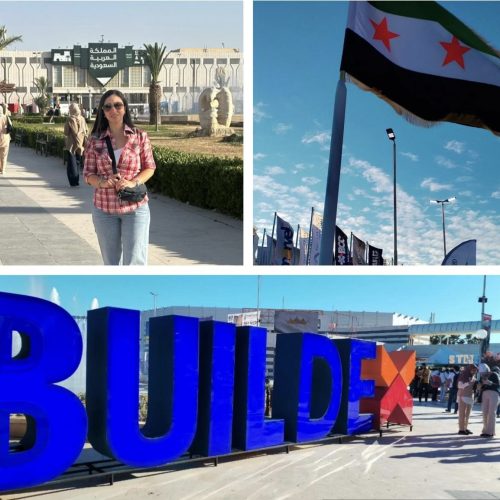After more than 14 years of conflict and global isolation, Syria is stepping back into the international economy. With many sanctions recently lifted by the US, EU, and others, the country is beginning a cautious return to trade and investment. This opens the door for international companies to explore a largely untapped market — but entering Syria comes with serious challenges, especially when it comes to protecting intellectual property (IP).
A Market Reopening — and Ripe with Potential
Syria’s location at the heart of the Middle East — bordering Iraq, Jordan, Lebanon, and Turkey — has always made it a vital link in regional trade. Now, as stability begins to return, businesses are taking a fresh look at Syria as a potential consumer market and logistics hub.
But companies considering this move must prioritize brand protection and IP enforcement from day one. Syria’s long disconnection from global commerce has weakened its legal system — especially in the field of IP.
The IP Problem: Outdated Laws and Widespread Infringement
Syria’s IP system faces several serious issues:
- Old and Incomplete Laws: Syria has some IP legislation in place — including trademark, copyright, patents, and consumer protection — and it has signed key international treaties. But these laws don’t address today’s IP risks like digital piracy, domain name abuse, AI-generated content, or ambush marketing.
- Weak Enforcement: Years of war and sanctions have disrupted enforcement bodies. Many agencies, especially customs, are understaffed or lack proper training in dealing with counterfeit goods and IP violations.
- A Market Flooded with Fakes: During the years of instability, counterfeit products became common — from medicine and electronics to luxury goods. With few legal consequences, many global brands stopped bothering to enforce their rights in Syria.
- Rampant Trademark and Digital Abuse: Unregistered domains, pirated software, and unauthorized use of global brands are everywhere — threatening IP-heavy sectors like tech, healthcare, fashion, and media.
Why IP Protection Matters Now?
If companies enter the Syrian market without securing their IP rights, they risk losing revenue, brand value, and consumer trust. But with the country at a turning point, now is the time to act — before the IP landscape becomes harder to fix.
As Syria begins to rebuild and rejoin the global economy, there’s a small but crucial window to lay the groundwork for a healthier IP system. Early engagement helps protect innovation, reduce future legal battles, and build trust with consumers.
DeMark IP: Helping You Protect What Matters
At DeMark IP, we see this moment not just as a challenge, but as a chance to help shape Syria’s future IP culture — to set standards and build systems that last.
We support businesses, institutions, and government partners looking to enter Syria with confidence. Here’s how we help:
- Training & Capacity Building: We work with customs, legal departments, and economic authorities to train enforcement teams and strengthen IP systems on the ground.
- Brand Protection & Enforcement: We investigate the market, identify IP violations, and take targeted action to stop counterfeit activity.
- IP Portfolio Management: We help businesses register and update their trademarks, patents, and copyrights so they’re recognized and enforceable in Syria.
- Border Control Strategy: We develop practical strategies to prevent counterfeit goods from entering or moving through Syria.
- Awareness Campaigns: We design educational campaigns to raise awareness about IP rights and reduce infringement — especially important for high-profile industries, major events, and AI-based innovations.
At DeMark IP, we’re ready to support your business through this transition — not only in Syria, but across the Middle East.
📧 Contact Us
To learn more about how we can help protect your IP in Syria or other high-growth markets, reach out anytime.
🌐 Website: www.demarkip.com
📩 Email: info@demarkip.com

Photo: BUILDEX Exhibition, Damascus-Syria, June 2025
BUILDEX is Syria’s leading construction exhibition, bringing together 500+ companies from across the region. As the country rebuilds, events like BUILDEX signal Syria’s return to global business — and the urgent need to protect your IP from the start.

